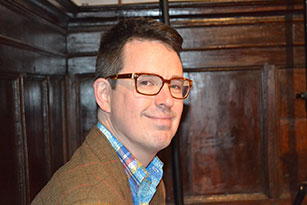
If there’s one piece of stock market wisdom everyone agrees on, it’s that it takes money to make money. Felix Wang W’08 knows better. Earlier this year the finance major and classical pianist minted $1,500 from a mock-stock portfolio he put together for the Barron’s Challenge, an online stock-picking contest involving about 2,000 students and professors.
That wasn’t the only prize he scored. While his virtual holdings were soaring to an eventual 114 percent return over the five-month life of the contest, Wang’s bet on a “semi-mature Chinese company” called CDC Corporation came to the attention of the company’s senior leadership. During a February visit to their alma mater, Shanghai-based CEO Peter Yip WG’78 and chairman Raymond Ch’ien Gr’78 (who is also a Penn trustee), sat down for an informal powwow with Wang.
“We value all our shareholders,” said Yip in a subsequent email interview, “from the large institutional investors to individual shareholders to students who select our stock for their competitive mock-portfolios.”
Wang, who had never met a CEO face-to-face, came away impressed. Although the rising Wharton senior is cagey about his methodology, he characterized CDC’s real shares as a solid long-term bet—even at a considerably higher price than when they first attracted his attention. “I feel like, when you research a particular company, these technical indicators are important,” he says, “but there’s also a psychological aspect. Do you like this company? Would you feel proud to be an investor in this company?”
Strange though it may seem for someone who beat his next closest competitor by a whopping 80 percent—including the 131 professors in the game—Wang said he currently owns no stock. But once he pays off his college bills and the debt he owes his parents, he may hit the markets with aggression and confidence. The Barron’s Challenge is only the latest of his stock-picking contest victories, and he has learned a lesson from his experience.
“A lot of people kept on asking me, ‘If you had real money, would your investment strategy change?’” Wang says, referring to the high-risk approach he embraces. “Five years ago, I would have said, ‘Yes—I would be much more conservative and I would be much more long-term-minded.’ But my feeling is, if something works well, why not continue using it?”
—T.P.




